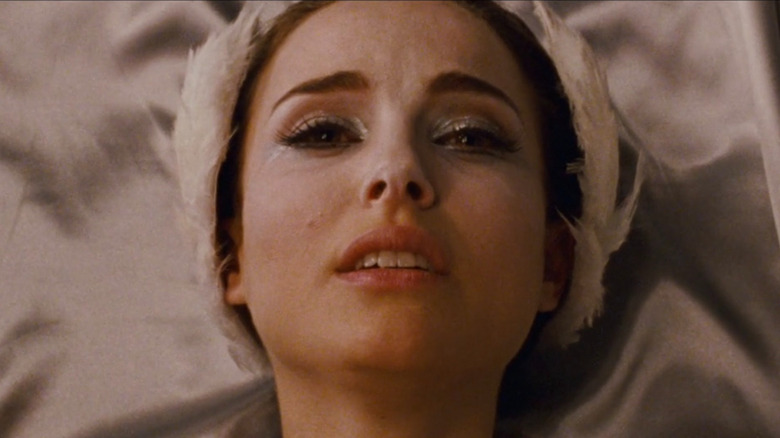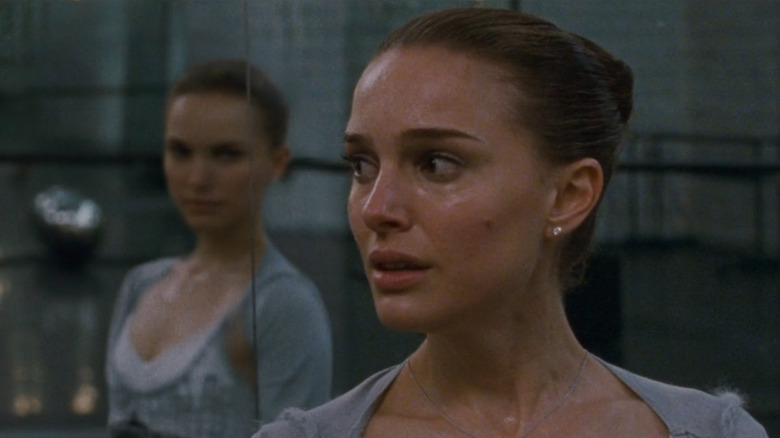Natalie Portman Waited A Decade For Her Black Swan Role To Become A Reality
When actors or directors become big household names, we like to think they have the ability to get whatever movie they have in their heads put on screen. Occasionally that happens, but it is a rarity. Most cinema artists have to scrape and claw and beg to get their movies made, spending years upon years developing and honing the material. Even the greats like Martin Scorsese can spend decades hoping to get a single film made that they really care about.
Natalie Portman and Darren Aronofsky are not some anonymous upstarts by any means. Even at the turn of the 21st century, Aronofsky had made a pretty significant splash with his breakout film "Requiem for a Dream," and Portman had begun her transition from talented child actor in "Léon: The Professional" and "Heat" to full-on movie star after the release of "Star Wars: Episode I – The Phantom Menace." They were on a steady upward rise, and Aronofsky pitched Portman about this movie about a ballerina, which she was on board to take on.
It would end up taking about 10 years before the film finally made its way to the big screen in what we now know as "Black Swan," for which Portman won an Academy Award for Best Actress. While the typical story of something like this is trying desperately to find the financing to put on the film, that was not exactly the case with "Black Swan." Oh, they found plenty of resistance, but it ended up coming from a much different place. It was coming from the world of ballet.
Trying to get a foot in the door
If you are a filmmaker worth your salt, you strive to do extensive research on a subject you wish to depict on film. For "Black Swan," Darren Aronofksy needed to learn as much as he could about the world of ballet, its peculiarities, and the personalities that exist within it. He could not just rely on Natalie Portman's own experience as a child dancer. However, he found a lot of obstacles in trying to find his way into truly learning the day-to-day lives of these people. In an interview with Collider, Aronofsky recalled the struggle with the ballet community:
"Most of the time, when you do a movie and you say, 'Hey, I want to make a movie about your world,' all the doors open up, and you can do anything and see anything you want. The ballet world really wasn't at all interested in us hanging out, so it took a long time to get the information to put it together. Over the years, Natalie would say, 'I'm getting too old to play a dancer. You better hurry up.' I was like, 'Natalie, you look great. It'll be fine.' And then, about a year out from filming, or maybe a little bit earlier, I finally got a screenplay together. That's how it started."
Based on how the ballet community is portrayed in "Black Swan," filled with ruthlessness and constant competition, I can understand why they would be resistant to having outsiders enter their doors. But that could also just be Aronofsky's perception of the community based on his experience and is completely false. My guess is it lies somewhere in the middle. Dancers get judged enough in their career. Why do they need an outsider observing them constantly as well?

